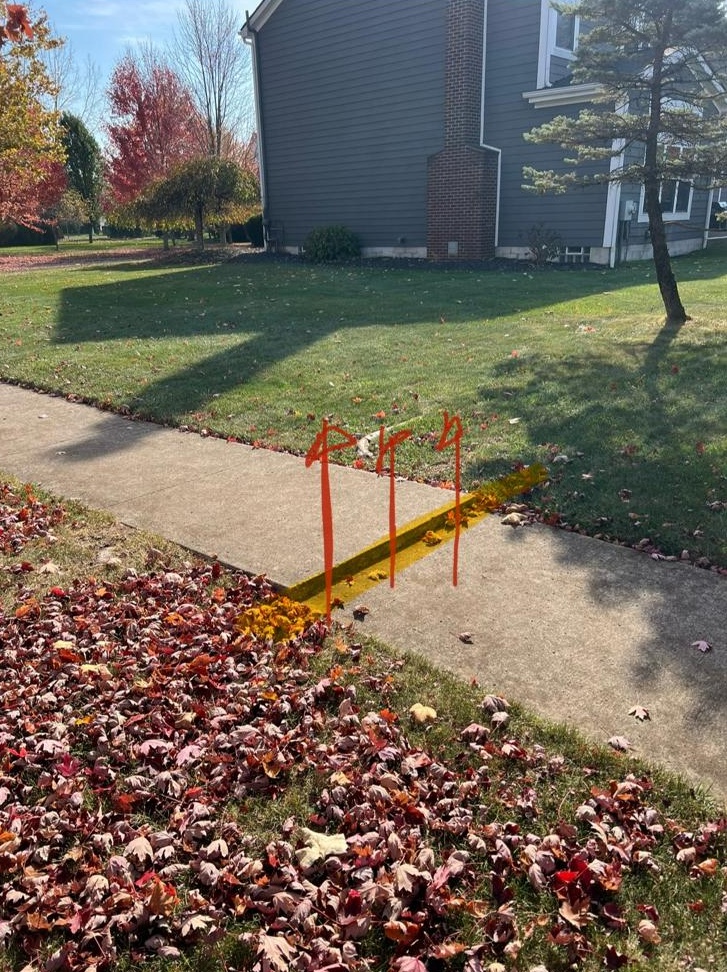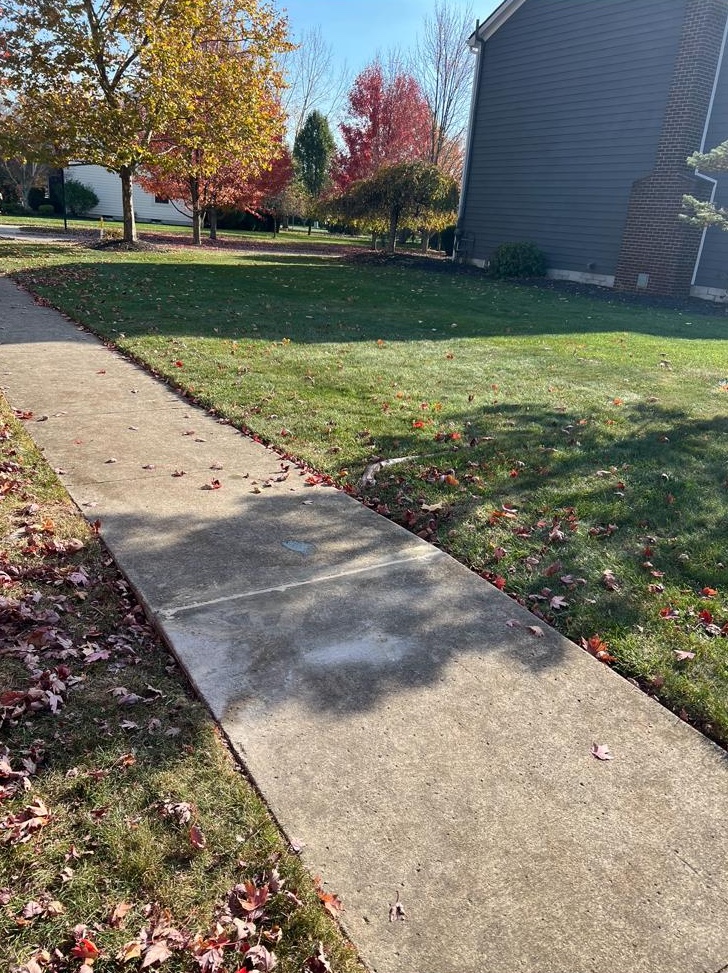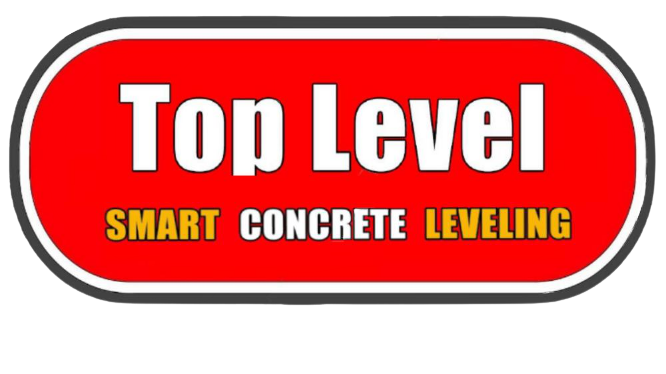Concrete Leveling vs. Replacement: Which Is Right for You?
When it comes to maintaining your property, concrete surfaces like driveways, sidewalks, and patios play a significant role in both safety and aesthetics. Over time, however, these surfaces can settle, crack, or become uneven, leading to unsightly and potentially hazardous conditions. If you’re noticing signs of wear on your concrete, you might wonder whether concrete leveling or replacement is the best solution. This article explores the pros and cons of concrete leveling vs. replacement to help you make the best choice for your needs.
What is Foam Concrete Leveling?
Foam concrete leveling, often called polyurethane foam injection leveling, is a technique used to lift and stabilize sunken or uneven concrete surfaces. This method involves injecting a lightweight polyurethane foam beneath the concrete slab, where it expands and hardens, lifting the slab back to its original level. It’s commonly used for repairing driveways, sidewalks, patios, and foundations affected by soil erosion, settlement, or other factors that cause concrete slabs to sink.
What is Concrete Replacement?
Concrete replacement, as the name implies, involves removing the old, damaged concrete and installing new concrete in its place. While this may seem like a straightforward solution, it can be a more complex and costly process than concrete leveling.
Now that we’ve covered the basics, let’s explore the key differences and determine which option—concrete leveling vs. replacement—might be right for you.
Key Differences Between Concrete Leveling and Replacement
1. Cost of Concrete Leveling vs. Replacement
One of the primary factors that influence the decision between concrete leveling vs. replacement is cost. Concrete leveling is generally a more cost-effective solution. Since it involves repairing rather than replacing the slab, it uses fewer materials and requires less labor. For many homeowners, this can mean significant savings compared to the cost of concrete replacement, which includes demolition, removal, and installation of new concrete.
Concrete Leveling: Cost-effective, affordable solution
Concrete Replacement: Generally more expensive due to additional labor and materials
2. Time and Efficiency
If you’re looking for a quick fix to restore the safety and appearance of your concrete surfaces, time is another critical factor to consider in the concrete leveling vs. replacement debate. Concrete leveling is typically completed within a few hours, and the surface is often ready for use the same day. On the other hand, concrete replacement can take several days to complete, especially when accounting for curing time.
Concrete Leveling: Quick process, minimal downtime
Concrete Replacement: Longer timeline, may take days to cure
3. Durability and Longevity
.Here’s a breakdown of durability considerations for each approach:
Concrete Leveling (Foam Concrete Leveling)
- Longevity: Foam concrete leveling is a durable option if the soil conditions and load requirements are stable. The polyurethane foam used is resistant to moisture, insects, and erosion, and it doesn’t degrade over time.
- Soil Stability: The durability of foam leveling depends on the stability of the underlying soil. If the soil beneath remains compact, the leveled slab can last for many years (typically 10–15+ years).
- Minimal Disruption: Foam leveling is minimally invasive, preserving the original slab, which can be beneficial in preventing surface wear.
Verdict: Foam concrete leveling is durable and effective when the underlying soil conditions are favorable, providing a reliable solution without the need for complete replacement.


Concrete Replacement
- New Foundation: Concrete replacement involves removing the old slab, preparing a new base, and pouring new concrete. This can result in a more stable and uniform foundation, especially if there were significant soil or structural issues.
- Material Integrity: New concrete slabs, when properly installed, are built to last 25–30 years or more with minimal maintenance, making it a good long-term solution.
- Cost and Time: While more durable in some cases, replacement is often more time-consuming and expensive. It also involves longer curing times, leaving the area inaccessible during the process.
Verdict: Full replacement is generally more durable than leveling for severely damaged slabs or those with unstable soil, but it is often more invasive and costly.
4. Environmental Impact
For eco-conscious homeowners, the environmental impact is a key consideration. Concrete leveling is often considered more eco-friendly because it uses the existing slab and requires fewer new materials. This reduces waste and minimizes the energy needed for new concrete production. Concrete replacement, on the other hand, involves demolishing and disposing of the old concrete, which can contribute to environmental waste.
Concrete Leveling: Eco-friendly, minimizes waste
Concrete Replacement: Involves more waste and new materials
5. Aesthetic Results
In terms of aesthetics, both options can restore the appearance of your concrete, but they may offer different outcomes. Concrete leveling will raise the slab and remove visible sinking, but it may not fully address surface cracks or discoloration. If the concrete surface has extensive wear, replacement may provide a more visually appealing result since it involves entirely new material.
Concrete Leveling: Improves appearance but may not address all surface imperfections
Concrete Replacement: Provides a fresh, flawless look
6. Foundation Stability
If your concrete surface has sunk due to soil erosion, water damage, or foundational issues, the stability of your foundation can be a concern. In the choice of concrete leveling vs. replacement, leveling is an effective solution for minor settling but may not be suitable if there are severe foundational issues. Concrete replacement can address deeper issues if extensive foundation repair is necessary.
Concrete Leveling: Suitable for minor sinking, limited in severe cases
Concrete Replacement: May be necessary for significant foundational problems
When Should You Choose Concrete Leveling?
Concrete leveling is an excellent choice in certain situations. Here are some scenarios where leveling may be the better option in the concrete leveling vs. replacement decision:
- Minor Sinking or Uneven Surfaces: If your concrete has minor sinking or uneven areas, leveling can restore it quickly and affordably.
- Tight Budget: Concrete leveling is a cost-effective solution for homeowners who want to save on repair costs.
- Eco-Conscious Choice: If you want to minimize waste and environmental impact, concrete leveling is the eco-friendly option.
- Short Timeline: When you need fast results with minimal disruption, leveling can be completed within hours, making it ideal for busy schedules.
When Should You Choose Concrete Replacement?
In some cases, concrete replacement may be the better choice. Here’s when replacement might be necessary in the concrete leveling vs. replacement decision:
- Extensive Damage: If your concrete is cracked, heavily deteriorated, or has severe surface damage, replacement may be the only way to achieve a lasting result.
- Foundation Issues: When foundational stability is a concern, replacement may be the more effective solution to address deeper problems.
- Long-Term Investment: If you plan to stay in your home for many years and want a more permanent fix, concrete replacement offers longer-lasting durability.
Concrete Leveling vs. Replacement: A Quick Comparison Table
| Factor | Concrete Leveling | Concrete Replacement |
|---|---|---|
| Cost | More affordable | Higher cost due to labor and materials |
| Time | Quick, usually a few hours | Longer process, includes curing time |
| Durability | Long-lasting but may not be permanent | Permanent solution in most cases |
| Environmental | Eco-friendly, minimal waste | More waste, new materials |
| Aesthetics | Improves appearance, may not fix cracks | Fresh, flawless look |
| Foundation Issues | Effective for minor sinking | Suitable for severe foundational issues |
Final Verdict: Concrete Leveling vs. Replacement – Which is Right for You?
The decision between concrete leveling vs. replacement depends on your specific needs, budget, and the condition of your concrete surfaces. If you have minor sinking or uneven surfaces and want a quick, budget-friendly fix, concrete leveling may be the best option. However, if you’re dealing with extensive damage, foundational issues, or want a more permanent solution, concrete replacement could be the way to go.
Call to Action: Contact Us Today for Expert Advice!
Deciding between concrete leveling vs. replacement can be challenging, but you don’t have to make the choice alone. Our team of experts is here to provide professional guidance and quality service tailored to your needs. Contact us today at 614-305-1050 for a free consultation. we’re here to help ensure the safety and beauty of your property!
